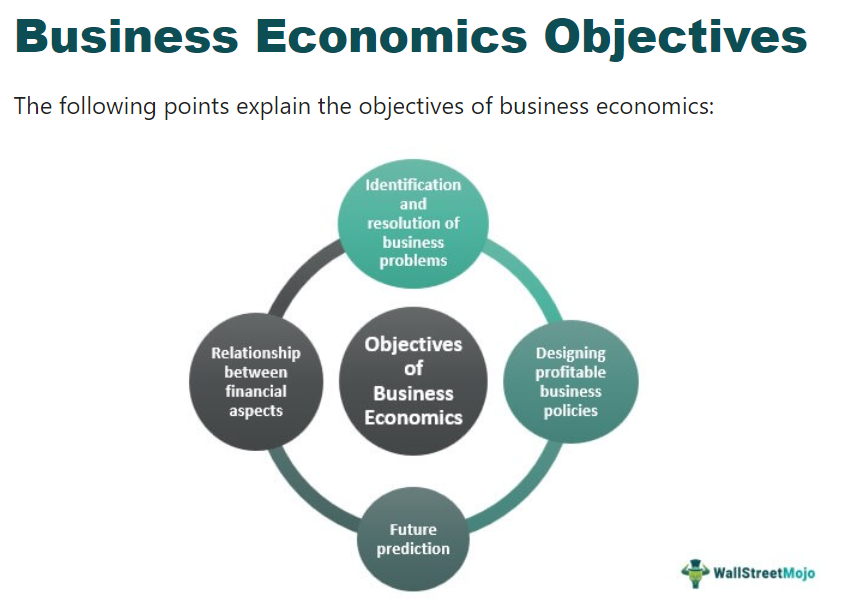Top Challenges Facing Business and Economics in the Post-Crisis Era
Top Challenges Facing Business and Economics in the Post-Crisis Era
Blog Article
Business and Business Economics 101: Essential Knowledge for Aiming Leaders
In today's quickly progressing company landscape, striving leaders have to grow a detailed understanding of basic tactical frameworks and economic principles. Understanding concepts such as supply and need, market structures, and competition is not just scholastic; these components are vital in forming reliable decision-making and promoting advancement. Financial literacy-- particularly in cash circulation monitoring-- offers as a cornerstone for lasting development. As we discover these important topics, it comes to be noticeable that the crossway of organization acumen and economic understanding is vital for future leaders to not just endure yet grow in their undertakings. What effects does this have for calculated management?
Understanding Supply and Demand
Supply and need are basic ideas that constantly underpin the auto mechanics of any type of market economic situation. The relationship between these 2 pressures identifies the price of services and products along with their accessibility in the market. Supply refers to the amount of an item that manufacturers are willing and able to cost numerous price levels, while need shows the amount that consumers want and able to acquire.
When demand raises without a corresponding rise in supply, rates have a tendency to rise, indicating producers to boost outcome. Alternatively, if supply overtakes need, prices may fall, triggering producers to decrease result. This vibrant interaction assists to attain market stability, where the quantity supplied matches the amount demanded at a details cost factor.

Exploring Market Structures
Market structures define the affordable setting in which businesses run, dramatically affecting their rates methods, result degrees, and total success. Understanding these structures is crucial for aiming leaders, as they form business decisions and market characteristics.
There are four primary types of market frameworks: excellent competitors, monopolistic competition, oligopoly, and syndicate. In a flawlessly affordable market, numerous firms offer identical items, bring about price-taking habits. Monopolistic competition features many companies marketing set apart items, enabling for some pricing power. Oligopolies contain a couple of leading companies that can influence market value, frequently causing tactical interactions and competitive actions. Syndicates exist when a single firm controls the market, resulting in the greatest level of rates power and prospective market inadequacies.
Each market structure presents special difficulties and possibilities for businesses. Leaders should understand these nuances to effectively place their companies, develop affordable strategies, and respond to market adjustments. By understanding the implications of numerous market frameworks, striving leaders can make enlightened choices that drive their organizations towards sustainable success and growth in an ever-evolving economic landscape.
Financial Principles for Leaders
Reliable management in business requires a solid understanding of monetary concepts, as they underpin calculated decision-making and source appropriation. Leaders must grasp vital principles such as cash circulation administration, success evaluation, and monetary projecting. These components are important in evaluating an organization's financial wellness and guiding its future instructions.
Capital management is particularly vital; it makes certain that the organization keeps sufficient liquidity to helpful resources satisfy its obligations while pursuing growth chances. Assessing productivity allows leaders to determine which services or items generate the greatest returns, enabling educated investment choices. Additionally, monetary projecting helps prepare for future profits and expenses, helping with more precise budgeting and source allowance.
Moreover, understanding monetary statements-- such as equilibrium sheets, earnings statements, and cash money flow declarations-- equips leaders with the understandings necessary to make enlightened selections. This expertise fosters accountability and openness, enhancing stakeholder depend on.
In today's vibrant company setting, leaders need to be skilled at translating monetary data to respond quickly to market adjustments. Ultimately, a strong understanding of economic principles encourages leaders to drive their companies toward lasting success while efficiently handling sources and threats.
The Role of Competitors
Understanding the duty of competition is crucial for any kind of service aiming to prosper in a saturated market. Competitors drives development and effectiveness, engaging companies to enhance their items and solutions consistently.
Furthermore, competitors can lead to far better rates methods. As companies compete for market share, they are incentivized to supply affordable rates, profiting customers while tough companies to take care of expenses effectively. This vibrant fosters a society go right here of continuous enhancement, pressing organizations to improve procedures and boost value suggestions.
In addition, competitors can boost market development by encouraging new entrants. New businesses commonly present fresh concepts and strategies, further boosting the overall market landscape. Firms need to additionally be vigilant; extreme competition can lead to market saturation, lowering earnings for all players involved.
Eventually, understanding and browsing competition is essential for leaders. By recognizing its multifaceted duty, aiming leaders can make informed choices that position their organizations for lasting success in an ever-evolving market.
Strategic Decision-Making
In the world of business, strategic decision-making is fundamental to attaining long-term purposes and adjusting to changing situations. This process entails evaluating different options and selecting one of the most effective strategy that aligns with the company's vision and goals. Efficient critical decision-making needs a complete understanding of both inner and outside environments, consisting of market fads, affordable characteristics, and business capacities.
Leaders have to collect pertinent details, assess it seriously, and projection potential results. Furthermore, evaluating threats linked with each alternate makes it possible for leaders to develop and anticipate obstacles backup strategies.
Eventually, effective critical decision-making equips organizations to browse complexities, take advantage of chances, and respond proactively to dangers. By cultivating a culture that values notified decision-making, organizations place themselves to introduce and maintain a competitive edge in an ever-evolving organization Full Article landscape. Aspiring leaders need to develop these skills, as their capability to make audio strategic decisions will significantly affect their organizations' success and sustainability.

Final Thought
In conclusion, a solid understanding of business and business economics principles is essential for aspiring leaders. Expertise of supply and demand, market structures, and financial concepts fosters educated decision-making and reliable resource appropriation. Understanding the role of competition additional enhances critical reasoning, enabling leaders to navigate complicated market dynamics. Ultimately, this fundamental understanding equips future leaders to introduce and straighten business methods with progressing market problems, paving the way for continual success and profitability.
Recognizing these concepts is important for aiming business leaders, as they create the structure for efficient decision-making in prices, source allotment, and market approach. Understanding supply and demand gears up leaders to browse the complexities of market changes and consumer behavior.
Monopolies exist when a single company regulates the market, resulting in the highest degree of rates power and potential market ineffectiveness.
By understanding the ramifications of various market structures, striving leaders can make enlightened decisions that drive their companies towards lasting success and growth in an ever-evolving financial landscape.
Comprehending the function of competition more boosts strategic reasoning, making it possible for leaders to navigate intricate market characteristics.
Report this page